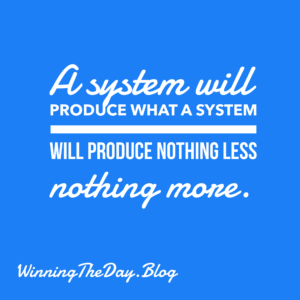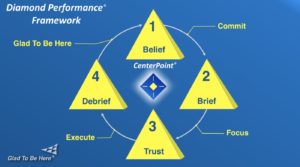In real estate, we’re hardwired for the hustle: the next closing, the bigger deal, that impressive commission. We live and breathe market shifts and lead gen. But what if I told you the secret to truly exceptional and enduring success isn’t just about the tactics, but something far more profound?
I recently revisited Napoleon Hill’s classic, “The Law of Success,” and it hit me just how powerfully his insights resonate with our industry – whether you’re a broker-owner charting the course, an agent chasing your dreams, or a recruiter building a powerhouse brand, brokerage, or team.
Hill’s groundbreaking work, born from studying the titans of his era, distills success down to this: it’s not random. It’s the direct result of applying specific, timeless principles and cultivating an unshakeable mindset. It’s not just about the grind; it’s about a complete philosophy of achievement.
Let’s dive into a few of Hill’s core ideas and see how they can transform your real estate journey:
Your Definite Chief Aim: What’s Your True North?
Hill hammers home the idea of a Definite Chief Aim – a clear, burning purpose that fuels everything you do. For us, this isn’t just “sell more homes.” It’s about defining precisely what that means for you. Is it to be the undisputed leader in your market? To build a team that empowers every member to achieve their wildest dreams? To create a culture of unmatched client delight?
Without this crystal-clear vision, you’re simply drifting. For leaders, your definite chief aim sets the trajectory for your entire organization. For agents, it defines your unique brand and personal legacy. Recruiters, it dictates the caliber of talent you attract. Get laser-focused on this, and watch how powerfully everything else aligns.
The Mastermind Alliance: Your Unstoppable Force
This is one of Hill’s most impactful concepts, and it’s absolutely vital in real estate: the Mastermind Alliance. This is a group of like-minded individuals who come together in a spirit of harmony to achieve a common goal. Think about it:
- Broker-Owners: Who are your trusted confidantes? Other non-competing leaders? Your C-suite forming an unbreakable front?
- Agents: Are you building strategic partnerships with lenders, stagers, or even other agents for powerful co-listings? Are you part of a team where collective brilliance elevates everyone?
- Recruiters: Are you tapping into a network of top producers and industry influencers to find your next superstar?
When you combine diverse intelligence, deep experience, and shared resources, you create an unstoppable synergy. Stop trying to do it all alone. Build your alliance.
Self-Confidence & Imagination: See It Before You Achieve It
Hill emphasized the critical role of self-confidence and imagination. In our world, this means more than just believing you can close a deal. It’s about vividly imagining yourself achieving your biggest goals: seeing your brokerage hitting record revenues, picturing that tough negotiation flowing smoothly, or envisioning your newest agent soaring to the top.
This isn’t just wishful thinking; it’s mental rehearsal. It builds an unshakeable conviction and allows you to proactively strategize solutions for any challenge. As leaders, inspiring this self-belief in your agents is truly transformative.
Doing More Than Paid For: The Abundance Multiplier
This principle, often overlooked, is a true game-changer: Doing More Than Paid For. This isn’t about being a martyr; it’s about approaching every single interaction with an abundance mindset.
- As a broker, are you providing extraordinary value to your agents, even beyond their commission split?
- As an agent, are you going the extra mile for your clients, anticipating their needs before they even voice them?
- As a recruiter, are you offering invaluable insights and genuine support to potential candidates, regardless of whether they join your organization?
This commitment to over-delivery builds an incredible reputation, cultivates fierce loyalty, and creates a powerful ripple effect of positive outcomes.
Revisiting “The Law of Success” was a powerful reminder that while our market constantly shifts, the fundamental human principles of success remain eternal. It’s about inspired leadership, an empowering mindset, genuine collaboration, and unwavering purpose.
So, as you step into your next busy week, pause for a moment. Ask yourself:
- What’s my definite chief aim for this next chapter of my career?
- Who belongs in my mastermind alliance?
- How can I do more than paid for today, for my team, my agents, or my clients?
The answers just might unlock a level of success you previously only dreamed of. What’s one Napoleon Hill principle that resonates most with you today?



